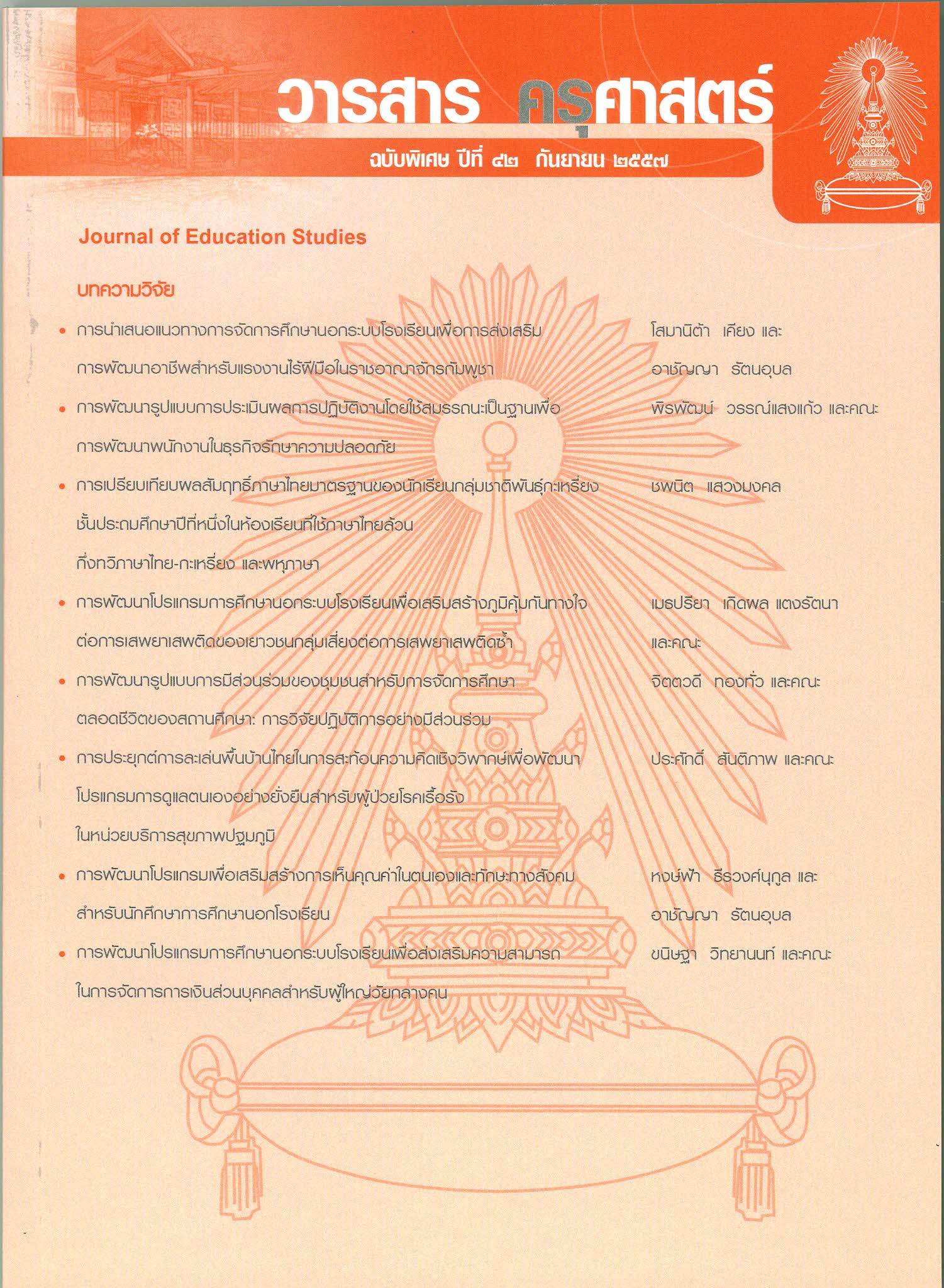Development of a Non-Formal Education Program to Enhance the Drug Abuse Resilience Quotient of Youthat- Risk of Drug Relapse
Keywords:
NON-FORMAL EDUCATION PROGRAM, RESILIENCE QUOTIENT, YOUTH AT-RISK OF DRUG RELAPSEAbstract
The purpose of this research was to develop a non-formal education program to enhance drug abuse resilience quotient of youth at-risk of drug relapse. The researcher studied the effects of the non-formal education program on the enhancement of drug abuse resilience quotient of 60 youth at-risk of drug relapse. The design of this study was the quasi-experimental research approach with two-group pretest and posttest. The experimental group, which consisted of 30 relapse drug at-risk youth who used the developed program, was compared to the controlled group, which consisted of 30 relapse drug at-risk youth who used the drug addicted treatment in the congested community in Klongtoey district. The research procedure was divided into three phases: 1) to study the learnersû needs about the non-formal education program to build the resilience quotient for the youth at-risk of drug relapse, 2) to develop the non-formal education program to build the Resilience Quotient for the youth at-risk of drug relapse, and 3) to study the impacts of applying the non-formal education program to build the resilience quotient for the youth at-risk of drug relapse. Experimental tools were the resilience quotient test and scale. This research analyzed with the descriptive statistics were X and S.D. and the inferential statistics was t-test.
The results of the research were as followed: The results of the learning need before created and developed the program were found: The youthful need to learn about the resilience quotient in high level. The development of a non-formal education program based on Program Development Concept of Boyle; furthermore, it was integrated by the Transformative Learning Theory and the Cognitive Behavioral Modification concepts. The results showed that the experimental group had the resilience quotientûs knowledge scores and the resilience quotient test scores higher than the controlled group at .05 level of significance. In addition,the experimental group had the resilience quotient test scores in restraint dimension and challenge dimension higher than the controlled group at .05 level of significance, but not significant in constancy dimension.




